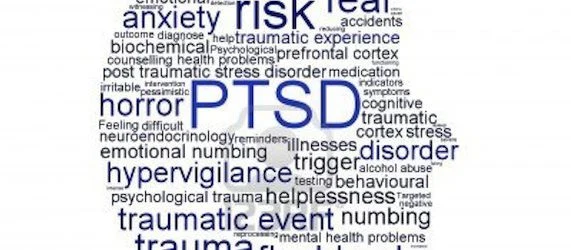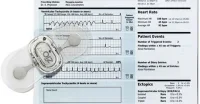Concern is growing over the potential of long-term untreated posttraumatic stress disorder (PTSD) symptoms
increasing the risk for medical problems, in particular compromised cardiovascular health.
According to the World Health Organization, heart disease remains the leading cause of death worldwide. Cardiovascular disease is an umbrella term for diseases of the heart and blood vessels, which are caused by a variety of known risk factors which include a person’s again, their family history, obesity, smoking, high cholesterol and high blood pressure.
Past research has shown individuals with PTSD being at a higher risk of suffering cardiovascular disease, yet most of these studies suggested this relationship existed on the basis of self-report measures, creating a need for objective studies to establish the validity of this hypothesis.
In the current issue of Biological Psychiatry, Jesse Turner and colleagues at the University of California, San Francisco have undertaken such a study and now publish their findings and new evidence of elevated rates of myocardial ischemia in patients with PTSD.
Their research included 663 outpatients from two Veterans Affairs Medical Centers whose risk factors for cardiovascular disease was evaluated by undergoing a series of assessments, questionnaires, a blood test as well as a structured interview with a clinician. Of these veterans, 230 were diagnosed with PTSD. As a final evaluation, the participants performed standardized exercise treadmill tests, commonly called 'stress tests', used in the detection of ischemia.
The presence of myocardial ischemia was detected in 17% of the participants with PTSD but only 10% of participants without PTSD, an increase not explained by differences in traditional cardiac risk factors, health behaviors like alcohol use and sleep quality, or depression.
According to Dr. John Krystal, Editor of Biological Psychiatry persistent PTSD symptoms produce more than psychological distress as they constitute a major adaptive challenge for the entire body. Krystal went on to conclude that increased risk for cardiac ischemia may turn out to be an important new concern for individuals suffering from long-standing untreated PTSD.
Dr. Beth Cohen, senior author on the project agrees that this study adds to a growing literature demonstrating the objective effects of PTSD on the heart. As the next step in the research Dr Cohen considers the identification of mechanisms, through which PTSD may damage the cardiovascular system, to be vital. She continued by stating that even though the study included controlling for several potential mechanisms, such as traditional cardiovascular disease risk factors, these did not explain the association of PTSD and ischemia, and that determining exactly how PTSD can affect the heart would enable the development of enhanced, innovative and tailored treatments to improve the health of veterans and other PTSD sufferers.
Latest Articles
PTSD, cardiac arrest, heart attack
Concern is growing over the potential of long-term untreated posttraumatic stress disorder (PTSD) symptoms increasing the risk for medical problems, in p...










